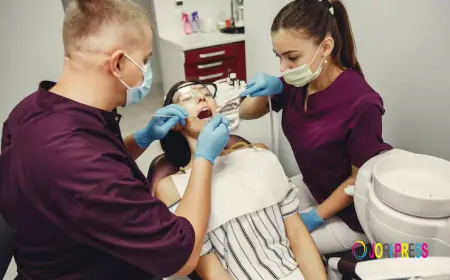Dei Biopharma Ebola acquires Ebola & Mpox vaccine patents, pushes for continental manufacturing role at Africa CDC Meeting in South Africa.

Ugandan-based Dei BioPharma, led by Dr. Matthias Magoola, has announced securing patents for Ebola and Mpox vaccines at an Africa CDC meeting, pushing its bid to become a key continental drug manufacturer.
The pharmaceutical firm has announced a major step towards continental health self-sufficiency, revealing it has secured new patent rights for both Ebola and Mpox vaccines.
Dr Matthias Magoola, founder of Dei BioPharma, disclosed the development on Friday, October 24, 2025, during the 4th International Conference on Public Health in Africa (CPHIA 2025), hosted by the Africa Centers for Disease Control and Prevention (Africa CDC).
Dr Magoola used the Durban meeting to advocate for the company’s official designation as Africa’s Contract Drug Manufacturing Organisation (CDMO). He said the biotech firm was prepared for a technical inspection of its Drugs and Vaccines Manufacturing Facility being developed near Kampala.
“We are ready to become the Continental CDMO for APIs, Biologics, Vaccines, Oncology, mRNA, Cell and Gene therapy,” Dr Magoola stated, arguing the firm’s readiness is critical to achieving Africa’s medical independence.
He urged pan-African cooperation, adding: “We urge all African nations and authorities to rally behind us and we are ready to sign a Memorandum of Understanding with Africa CDC to be designated as a continental CDMO.”
The call for greater self-determination was reinforced by Dr Monica Musenero, Uganda’s Minister of Science, Technology and Innovation, who spoke at the conference. She stressed that increased investment in research and development remains the “missing link” required for Africa’s economic and health transformation.
Dr. Musenero challenged the scientists to offer practical solutions of Africa’s scientific knowledge into profitable industries.
“If every input—from vials to machines—is imported, are we truly manufacturing? Without R&D, such efforts may even hurt the economy,” she said.
She praised the current US government’s move to funding into the health programmes in Africa, arguing that the drastic measure had created positives where African health professionals have been forced to find home made solutions.
Raji Tajudeen, the Deputy Director-General of Africa CDC, stressed that health sovereignty would only come through sustained investment in R&D and manufacturing.
“It took millions of deaths during COVID-19 for us to realise we lacked the capacity for research and vaccine production. A continent of 1.5 billion people should not be manufacturing only one per cent of its vaccines,” he said.
Dr. Magoola indicated that the Dei BioPharma is able to shorten the Africa CDC agenda of having 60 percent of the vaccines used in Africa manufactured from home by 2040 – from the 15 projected years to 7 years.
On the two new patents for the crucial Ebola and Mpox vaccine inventions – Dr. Magoola said the pioneering mRNA Ebola vaccine— is a transformative milestone that affirms Africa’s capacity to invent, protect, and advance world-class biomedical technologies. “The patent represents a breakthrough in the continent’s pursuit of scientific and economic independence, demonstrating that high-impact innovation can originate and be owned entirely within Africa”.
He said the new patented vaccine utilizes messenger RNA technology to encode the Ebola virus glycoprotein in a lipid-nanoparticle formulation, offering an unprecedented combination of speed, safety, and scalability.
He said that unlike conventional viral-vector vaccines, the Dei BioPharma mRNA platform can be rapidly manufactured without the use of live virus, enabling a faster response to future outbreaks and reducing dependence on external suppliers.
The achievement positions Dei BioPharma as a trailblazer in next-generation vaccine design and manufacturing on the continent.
Dr. Magoola described the patent as “a defining moment in Africa’s scientific story,” noting that for decades, Africa has relied on imported health technologies developed elsewhere.
“Today,” he said, “we move from dependency to self-determination. Africa is no longer waiting for solutions—it is creating them.”
On the Mpox vaccine, Dr. Magoola said the invention utilizes messenger RNA technology to encode the MPOX virus glycoprotein in a lipid-nanoparticle formulation, offering an unprecedented combination of speed, safety, and scalability.
He added that unlike conventional viral-vector vaccines, the Dei BioPharma mRNA platform can be rapidly manufactured without the use of live virus, enabling a faster response to future outbreaks and reducing dependence on external assistance.
The two milestone build upon Dr. Magoola’s remarkable record of leadership and innovation. In 2025, Dei BioPharma announced its entry into active pharmaceutical ingredient manufacturing in Uganda, launching a historic program to produce high-cost patented drugs locally and make them affordable across low- and middle-income nations.
Dei BioPharma, a subsidiary of Dei Group International, continues to build Africa’s first fully integrated biopharmaceutical complex in Matugga, Uganda, dedicated to producing vaccines, biosimilars, and RNA-based therapeutics. The facility will serve as a cornerstone for Africa’s self-sustaining biomanufacturing ecosystem, ensuring that future innovations—like the Ebola mRNA vaccine—are conceived, produced, and distributed within Africa for the benefit of its people and the world.
Held under the theme “Building Inclusive Health Systems that Leave No People with Disability Behind,” the summit brought together young people with disabilities, policymakers, government officials, civil society, and development partners to discuss strategies for integrating disability-inclusive approaches into Uganda’s health system.
What's Your Reaction?
 Like
0
Like
0
 Dislike
0
Dislike
0
 Love
0
Love
0
 Funny
0
Funny
0
 Angry
0
Angry
0
 Sad
0
Sad
0
 Wow
0
Wow
0

















































